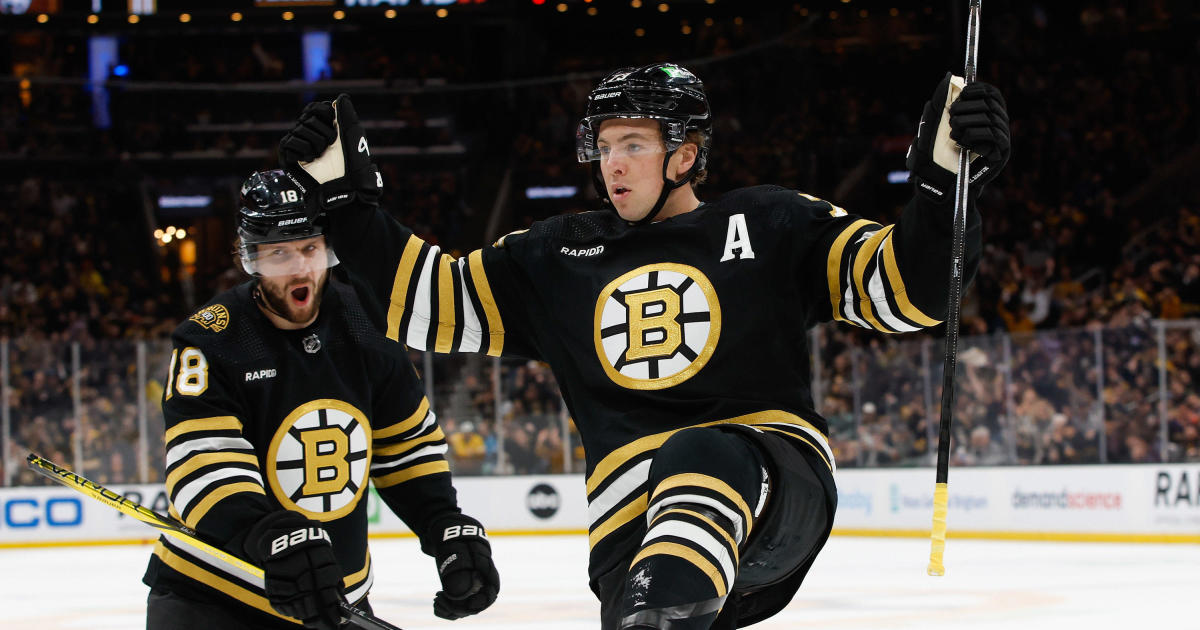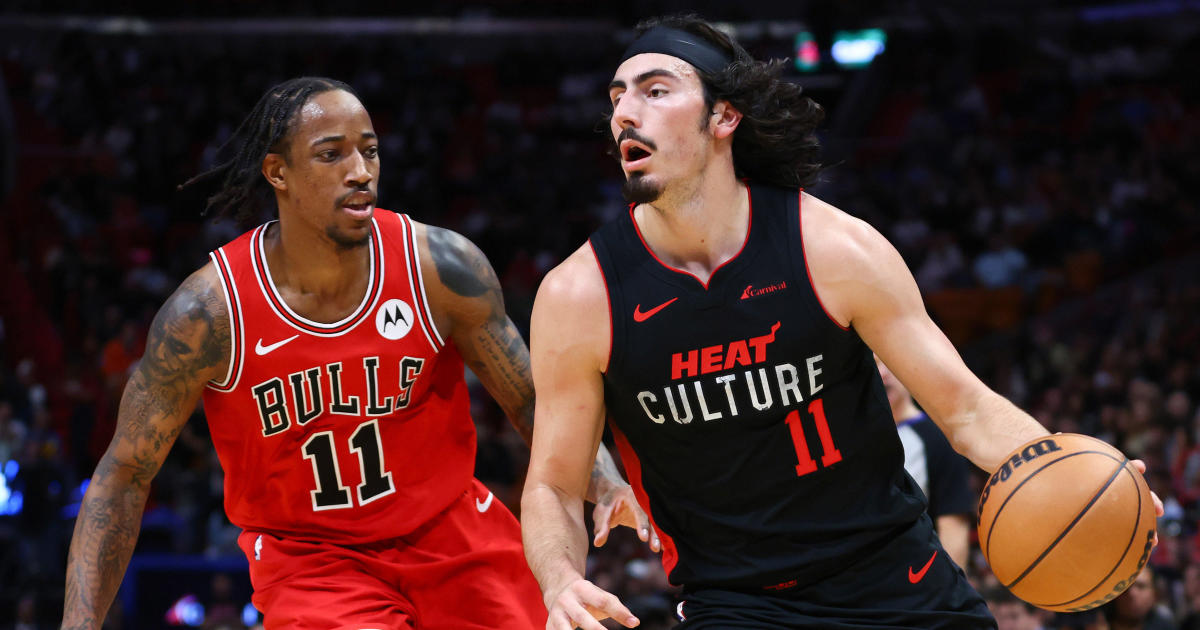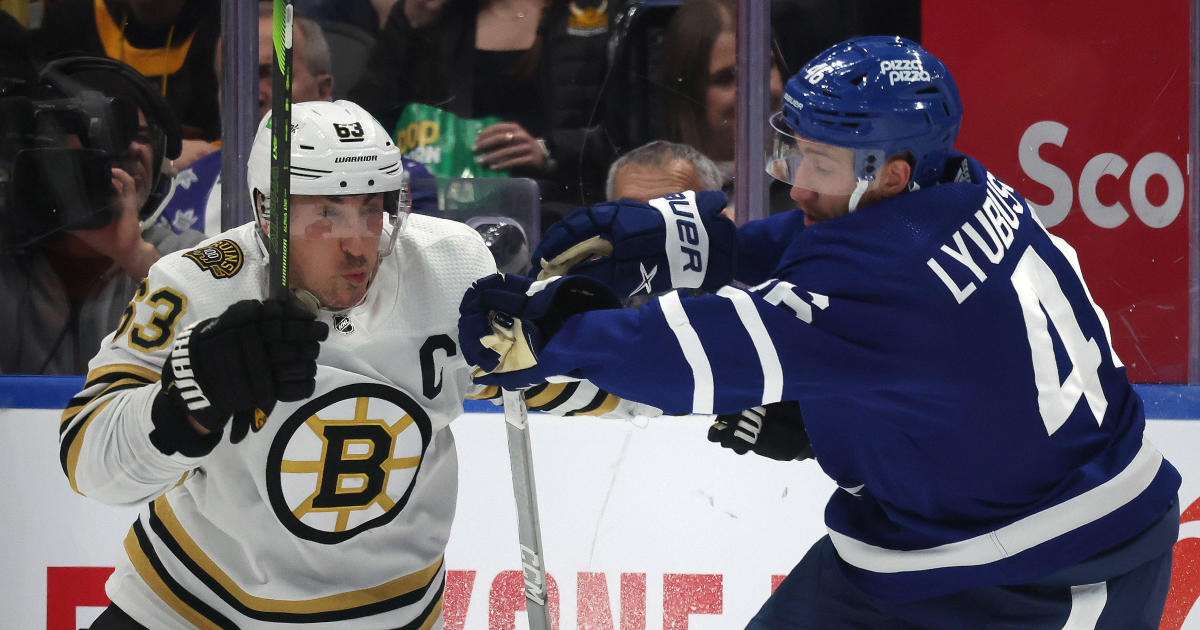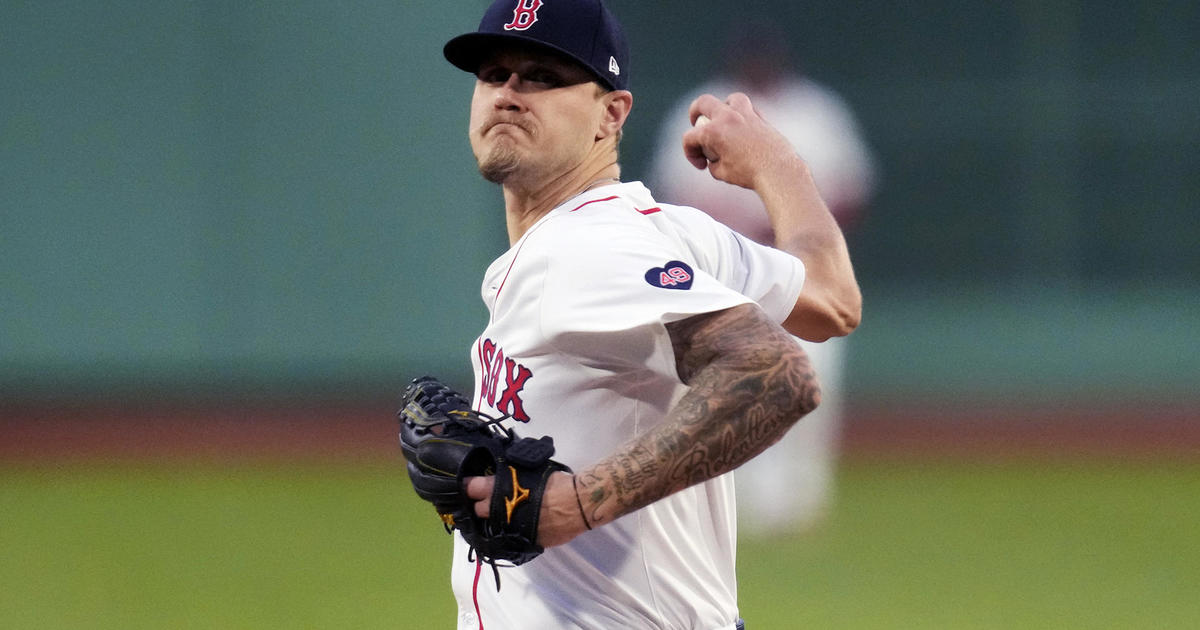NFL's COVID-19 Reserve List May Be Sports' Most Overlooked Story Right Now
By Michael Hurley, CBS Boston
BOSTON (CBS) -- Hockey? It's back. Basketball? Back, too.
Baseball and football? Wellllll ... one is "back," and the other is trying to get there, but the situation does not look particularly peachy at this precise point in the pandemic.
We can start with Major League Baseball, which is seemingly in a perpetual scramble to try to hold its season despite positive tests throughout the league and a full-blown outbreak within the Miami Marlins organization.
Adding to the troubling nature of the COVID-19 issues affecting the game is the positive test from a clubhouse staffer from the Phillies organization. Surely when the return of sports has been discussed nationally, generally only the players and coaches have been considered when assessing the risk of playing during a pandemic. Yet having a low-level, low-salary employee catch a virus while doing his job certainly adds a dimension that absolutely should not go overlooked.
Baseball's issues just over a week into the season should provide a clear picture of what lies ahead for the NFL, where teams have more than twice as many players and coaches, and where athletes will be colliding at full speed and piling on top of each other and interacting in a way that is completely antithetical to the concept of "social distancing." While a baseball team may be able to limit exposure if one player gets infected, a football team -- with tighter locker rooms, closer contact, huddles, tackles, crowded sidelines, etc. -- likely would not get so lucky.
And thus far, the number of players that have already been placed on the COVID-19 reserve list may be the most overlooked story in the sports world right now.
After 15 more players were added around the league on Thursday, the number of players on the COVID-19 reserve list is up to 66.
Being on the list does not mean that a player has necessarily tested positive for COVID-19. Players on the list have either tested positive or are in quarantine after being exposed to an infected person. If a player does test positive, he can come off the list after a certain amount of time has passed since the positive tests. If a player does not test positive but is nevertheless in quarantine, he can come off the list after taking two negative tests and continuing to get tested daily for eight days.
At this point in the summer, having 66 players on a COVID-19 list doesn't negatively affect operations too much. In fact, keeping those infected and potentially infected players out of team facilities is a step that can and will prevent outbreaks from taking place almost immediately in training camps around the country. (That is, of course, provided the players return to work in a somewhat expeditious fashion. Browns punter Jamie Gillan, who tested positive earlier in the month and tested positive again this week, is not so fortunate.)
It is important, though, to note that 66 players (and counting) have been added to this list in the first week of its existence. The players landed on this list because they live in a country where the coronavirus continues to rage in various places. NFL players are equally susceptible to the virus as the general public, and the general public continues to catch and spread the virus every day. The states of California, Texas and Florida -- which are home to nine of the NFL's 32 teams -- set new daily records this week for coronavirus deaths.
Presumably, keeping the 66 players out of camps will help matters now. But from a slightly pessimistic/stringently realistic perspective, players living their lives in a country where the virus is not under control will certainly lead to more players being added to that list after they've spent time around teammates in the coming weeks. With no bubble in place (or even possible) for the NFL, that reality is much more of a certainty than it is a possibility.
MLB tried to impose a similar system over the past month: keep infected players away from teammates if they test positive, and hope that the uninfected environments persist throughout the whole season. The regular season couldn't even begin before a star player tested positive, and days later, the Marlins' outbreak effectively cut the season down at its knees. We'll see if baseball can survive the latest round of positives and postponements, but the outlook does not look tremendous after a week of disarray.
MLB's most recent scrambles have the league imposing seven-inning doubleheaders while also adding glorified chaperones for each team to assign seats on team buses, among other tasks. Whether that's a case of problem-solving or merely rearranging the deck chairs on the Titanic is a matter of interpretation and outlook.
And again, for football, this issue will be much more difficult to contain. If a player tests positive, how can anyone who shared a huddle with that player continue to practice and play and participate in meetings? Those teammates -- by the guidelines of the COVID-19 reserve list -- would have to be placed on that list immediately, thus removing a number of players from facilities in what is already a hyper-condensed training camp. (The aforementioned lower-level, lower-salaried employees who comprise the equipment staff as well as other roles throughout facilities should also not go overlooked.)
Now lay out that scenario in the regular season. If a player travels with his team and plays in a game on Sunday, only for a positive test to come up on Monday or Tuesday, then everyone who came into contact with that player would (theoretically, at least) have to be placed on the reserve list. If that player were, say, a starting offensive lineman, than the list of players in close contact would involve all of his offensive teammates in the huddle, all of the opponents' defensive line and linebacking corps, and likely some defensive backs from the opponent as well. Add in the travel factor, and anyone who was remotely close to that player on the team flight would be at significant risk. Postponing a football game isn't quite so easy as postponing a baseball game, either.
And as it stands now, teams will be playing their full schedule. For a team like the Patriots, that involves a cross-country trip to Seattle in September, as well as a two-game trip to Los Angeles in early December -- a trip that was expected to keep the Patriots in California for nearly a full week.
The Seahawks, as usual, will be racking up the travel miles -- roughly 29,000 miles will be traveled by Seattle's football team for road games. Ten teams total will be traveling more than 19,000 miles for road games this year. That's a complication that cannot be overlooked right now -- as evidenced by the Marlins still being quarantined in a Philadelphia hotel, unable to play or practice or even go home.
It's a problem.
The shortened version here is that the country is still in the grips of this pandemic. Major League Baseball hoped it would avoid the problem, but lo and behold, baseball players who live in hot spots and travel around the country can indeed catch and spread the highly contagious virus. As a result, the league is desperately trying to plug each new hole, but the ship may be well on its way to sinking.
For the NFL -- with more players, more coaches, more contact, more time together, a longer history of league-sponsored doctors who have not always had the best interest of players and their health in mind, and less social distancing -- a similar situation seems to be inevitable.
It's possible that the NFL could somehow get lucky and avoid MLB's predicament. But "hope to get lucky" is not generally a recipe for success in any business, let alone in the midst of a pandemic that has cared very little for even the best-designed plans and intentions.
With more than five dozen players already on the COVID-19 reserve list, it's time for the NFL to really work to try to find creative solutions so that they don't end up in the position of MLB. Whether that's shortened schedules and/or lighter travel loads and/or more mandated virtual meetings and/or better and faster testing processes and/or all of the above, there's no one, clear answer.
Yet instead of worrying about jersey swaps and attendance figures, it's time for the NFL to really focus on what it can do to prevent the proliferation of a virus that will quickly and easily shut down operations if left unchecked. It's not at all hyperbolic to say that an entire season is at stake.
You can email Michael Hurley or find him on Twitter @michaelFhurley.



